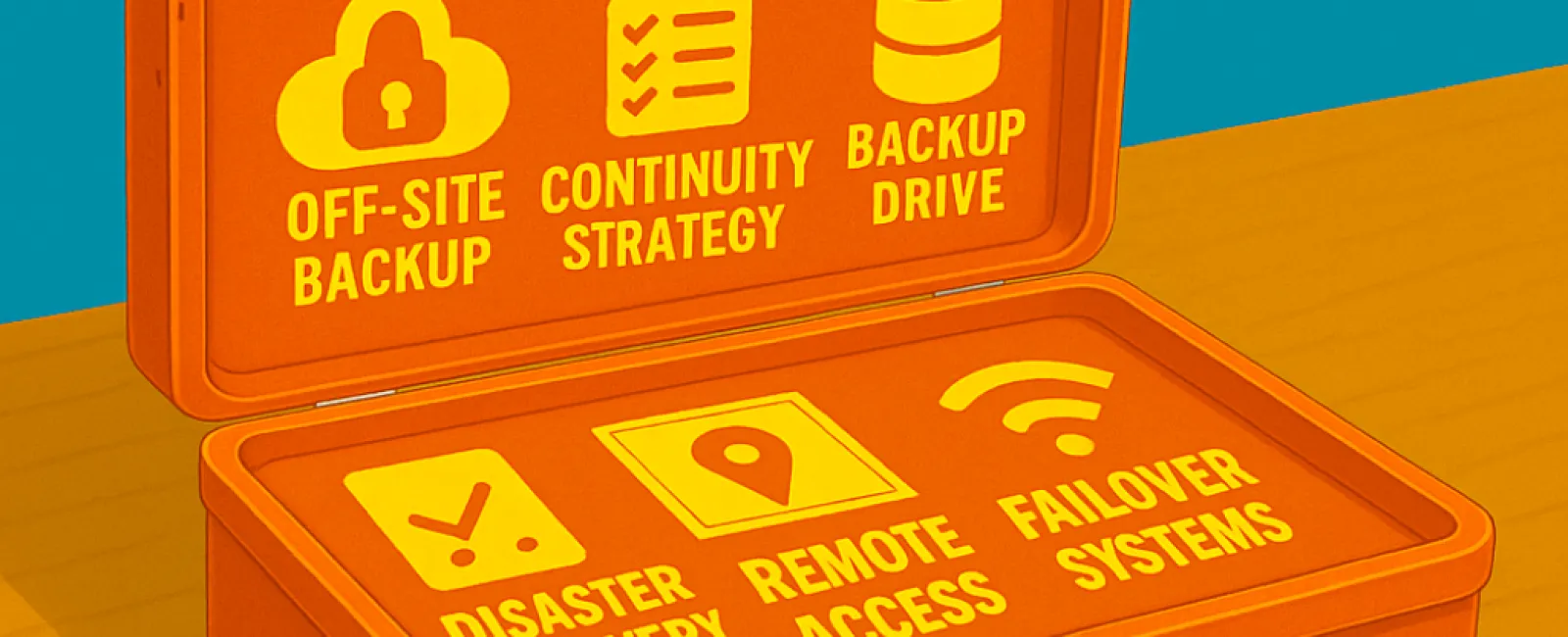July 28, 2025
Unexpected power failures, cyberattacks, hardware malfunctions, and natural catastrophes can strike without warning, causing severe disruption to small businesses. Many believe that simply having a backup is sufficient, but restoring a file alone doesn't guarantee business continuity. If your systems are inaccessible, remote work is unsupported, or communication with your team and clients breaks down, even a brief interruption can lead to lasting damage. A dependable IT partner should equip you not only with backups but also with a comprehensive strategy to keep your business fully operational under any circumstances.
Backups Alone Aren't Enough — You Need a Robust Continuity Plan
Backups are undeniably crucial, but they represent just one piece of the puzzle. What truly safeguards your business is a business continuity plan: a proactive approach designed to maintain your operations during and after any major disruption.
When systems fail, data becomes unreachable, or your physical office is compromised, relying solely on local backup files won’t cut it. Without a well-defined plan to swiftly restore functionality, your business faces significant risks including loss of revenue, damage to reputation, and regulatory non-compliance.
Understanding the Critical Difference Between Backups and Business Continuity
Many organizations make this common mistake:
●
Backups enable data restoration.
●
Continuity ensures your business stays operational regardless of the crisis.
An effective continuity plan addresses essential questions such as:
●
How quickly can we resume operations?
●
Where will our team work if the office is inaccessible?
●
Which systems are absolutely critical to our mission?
●
Who is responsible for initiating the recovery process?
Key elements of a robust plan include:
●
Encrypted, off-site, and immutable backups
●
Clearly prioritized recovery objectives (RTO/RPO)
●
Preparedness for remote work scenarios
●
Redundant infrastructure and automatic failover systems
●
Routine disaster simulation drills
If your IT provider cannot confidently guide you through these critical components, you’re not truly protected — you’re just fortunate so far.
Could This Happen to You? Absolutely.
This isn’t a scare tactic — it’s a reality check. Disasters with severe consequences happen every day. Recently:
●
Florida hurricanes forced hundreds of businesses to shut down, especially those lacking cloud access.
●
North Carolina floods wiped out on-site servers, erasing months of critical data.
●
California wildfires destroyed entire office buildings without proper off-site recovery plans.
●
Numerous small businesses struck by ransomware attacks discovered their backups were either corrupted or untested.
Disasters don’t discriminate — they affect businesses of all sizes every day.
Essential Questions to Ask Right Now
If disaster struck tomorrow, would your business keep running?
Ask your IT provider:
●
How quickly can we recover from a ransomware attack?
●
Are backups regularly tested, and which systems are covered?
●
What’s the contingency if fire or flooding disables our office?
●
Is our continuity plan fully compliant with industry regulations?
●
Can we continue serving clients if our team must work remotely?
If you can’t answer these questions with confidence, your business is vulnerable.
Disasters Are Inevitable. Downtime Doesn’t Have To Be.
While you can’t prevent every power outage, storm, or cyberattack, you can control how your business responds.
A reliable IT partner helps you bounce back.
An exceptional one ensures your business never misses a beat.
Ready to assess your business’s readiness?
Click Here or call us at (646) 989-9900 to schedule your FREE Business Technology Alignment Assessment, and let’s ensure a disaster never causes downtime.





